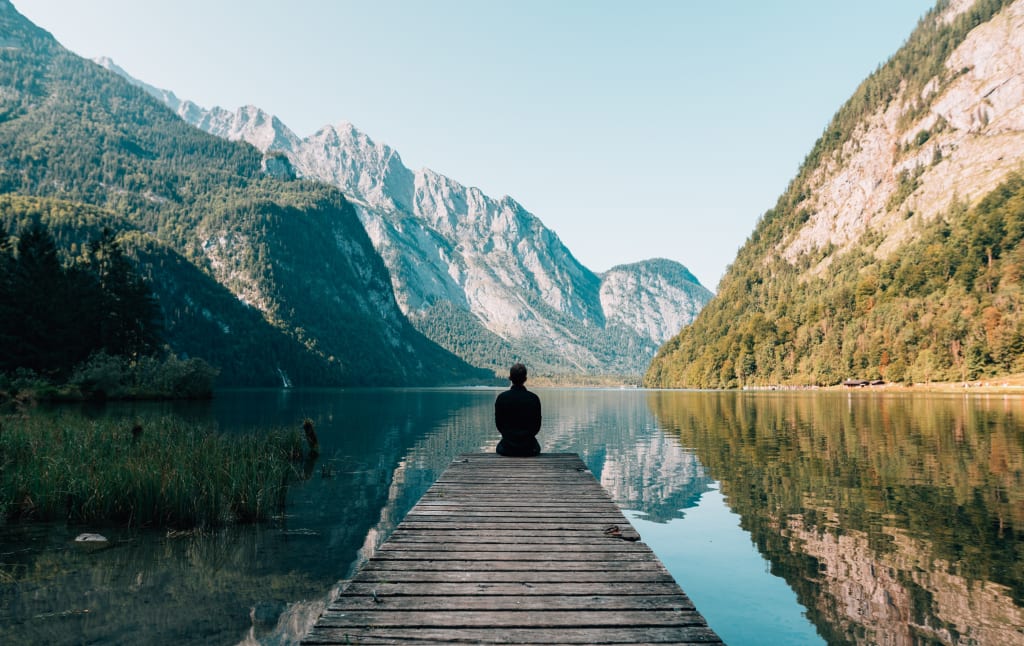A Loss of Relatability and My Bladder
My body will likely never go back to how it was before things began going south, which is upsetting.

I was 18 when I began my relentless battle with my body, and four years later, I can't relate to those who are closest to me.
My bladder stopped functioning properly the summer before my 19th birthday, from one day to the next. It was embarrassing and rough, but it's my body and it's what happened to me. After visiting five doctors over the past several years, some conclusions have been drawn. The root of the illness is unknown, there's no medication or therapy to cure it, and I've decided that I need to attack this issue on my own because nobody else can help me.
Because there was no effective medication or treatment available, I tried everything I could find on the internet to try to help my body heal. I did some weird things out of desperation, and I was open to giving any potential solution a shot. Eventually, I would figure out that my diet played the biggest hand in my bladder's functionality, and I know that I can only eat 10 different things to avoid any unpleasant symptoms.
While my illness is hard on my physical body, I'd contest that it's more taxing on my mind. Having a bad bladder made me avoid seeing friends outside of work, I switched to all online university courses, and I had to be very careful about what I chose to wear. Even once I was 21, I couldn't go to the bar because I can't drink alcohol and social situations did (and still do) give me some anxiety because I can't always know if my body will behave.
I became very reserved during the peak of my illness, rarely talking to friends or family about my health. I stopped talking to some members of my family altogether because it's uncomfortable for me to be upset around other people. I also didn't know how to put my incoherent and depressive thoughts into words to convey what I was experiencing to others. During the worst years of my illness, I had to completely change my diet and I was forced to give up running. I just didn't feel like myself anymore, I wasn't getting any enjoyment or comfort from anything, and I began to feel as though I couldn't relate to anyone.
I can't relate to people who could go to a four-year university immediately after high school, or to my brother who goes for runs and doesn't have to worry about what he eats. My family watches what they eat for reasons relating to calories and nutrition, but never having to sweat about how their bladder will be affected by their food choices. Chronic illness is never an enjoyable topic to think about, let alone talk about, and I didn't speak about anything happening with my body until I was two years deep.
When I was 21, I began dating a man, and this overwhelming sense of not being able to relate to other people my age became apparent. We were having a casual conversation in my car when he asked the air why people who are disabled can't just go for a hike. The concept of a person's body not being capable of x, y, and z, and not being able to "just push through it", was a completely foreign concept to him. And while I was angry at him for not being able to comprehend this idea, as someone who had not been able to even go to the grocery store for the last two years… I realized that he just didn't get it.
I believe that chronic illness and the effects it can have on a livelihood cannot be fully grasped unless you have also experienced something similar. I wouldn't want anyone else to deal with how 19–22 years old me felt when I was convinced that I would never get to a better place with my body. Or that you've lost your "real body" when an organ begins to dysfunction from no given cause. My body will likely never go back to how it was before things began going south, which is upsetting.
Once I was convinced that my body would be this way until I die, I began to self-harm. They aren't pretty, and I'm not proud of them, but I have some scars on my feet and a small spot on my leg. My feet were hurting last night, and I slipped them out of my sandals and stood barefoot in my apartment's parking lot while talking with a friend. He began to make jokes about them, but it didn't bother me. While this friend and I are close, I realized that our experiences in mental health are vastly different, and self-harm is something that we can't relate to each other about.
While my health is always my foremost concern, not everyone can understand my struggles because not everyone has been through something comparable. And I wouldn't want anyone else to be afflicted by my illness. But it's more valuable, from my perspective, to connect to other people on only some common interests. Sports, books, writing, etc. And not to just focus on the whole picture, because while my whole picture is crowded by my bladder, for some, health is just a pixel in the image.
About the Creator
Kataryna Izol
Contemporary issues, mental health, and true crime writer.






Comments
There are no comments for this story
Be the first to respond and start the conversation.